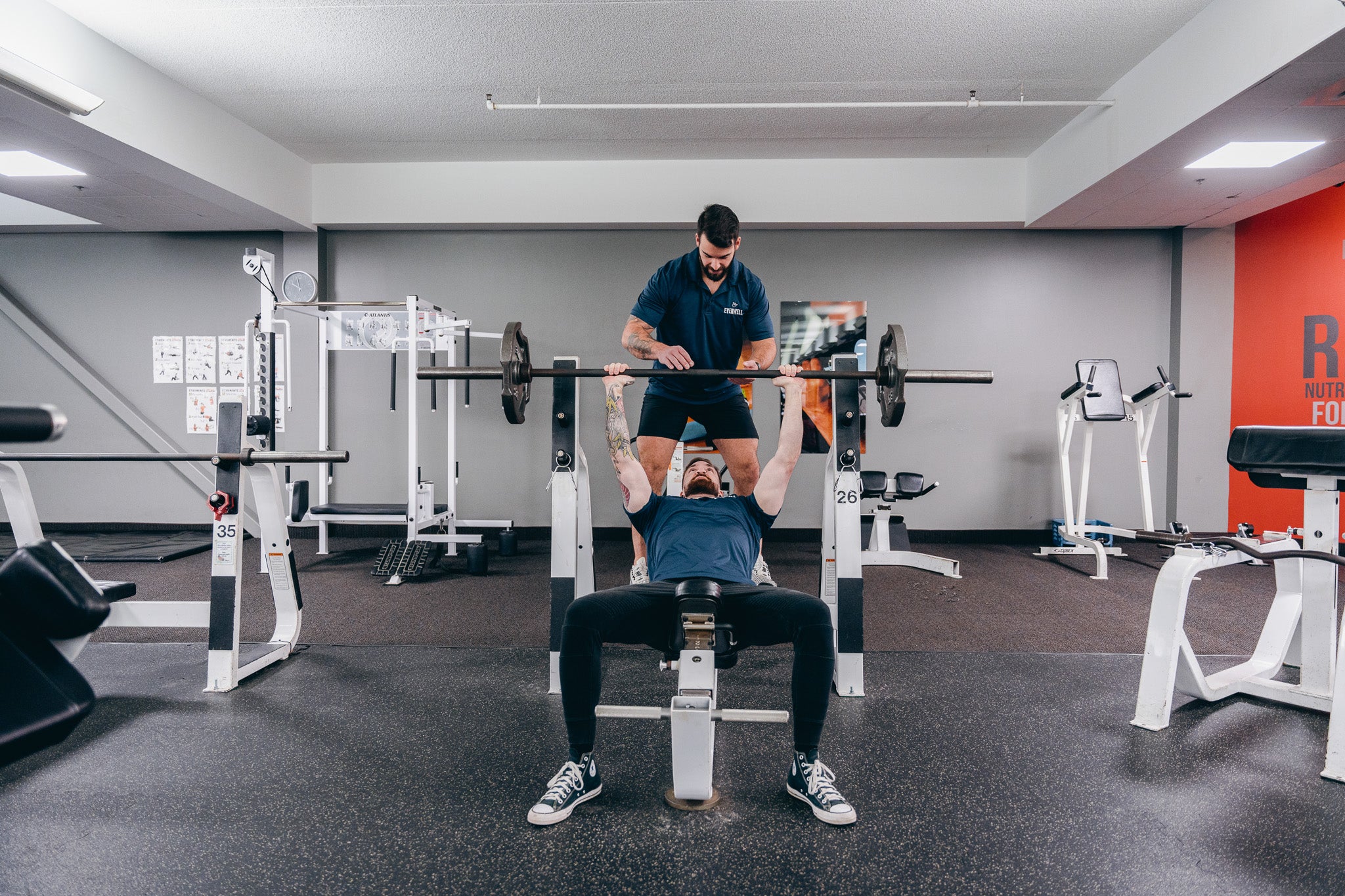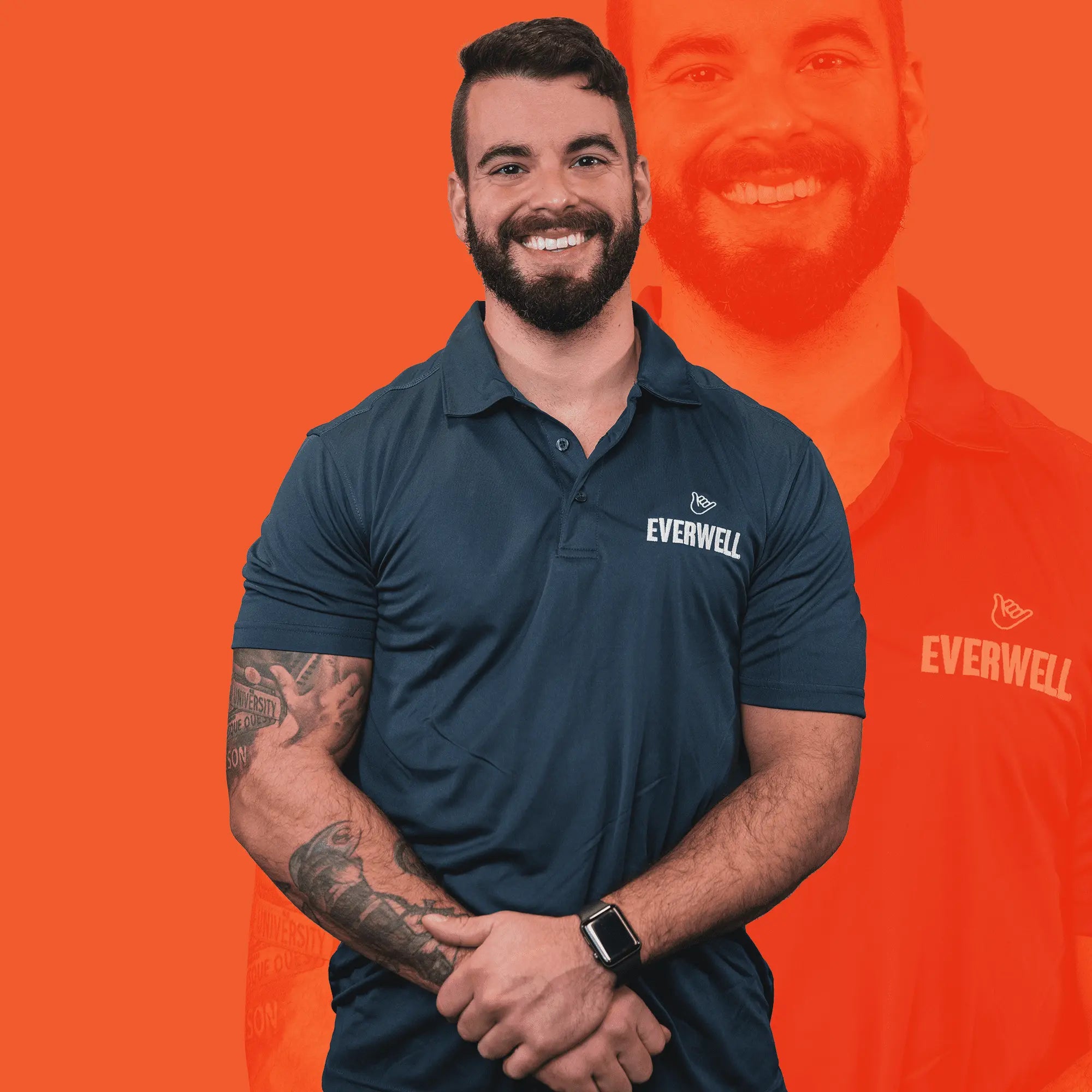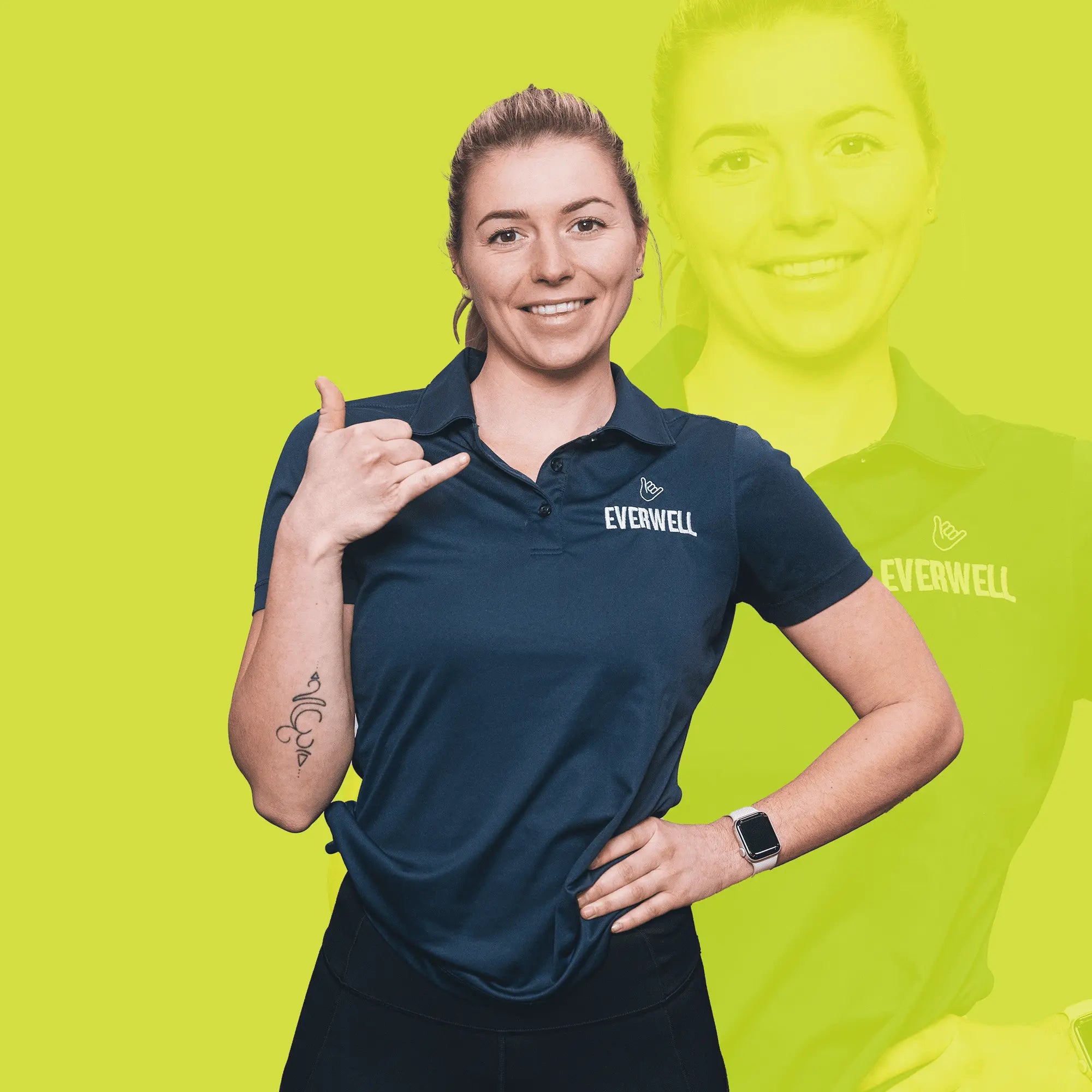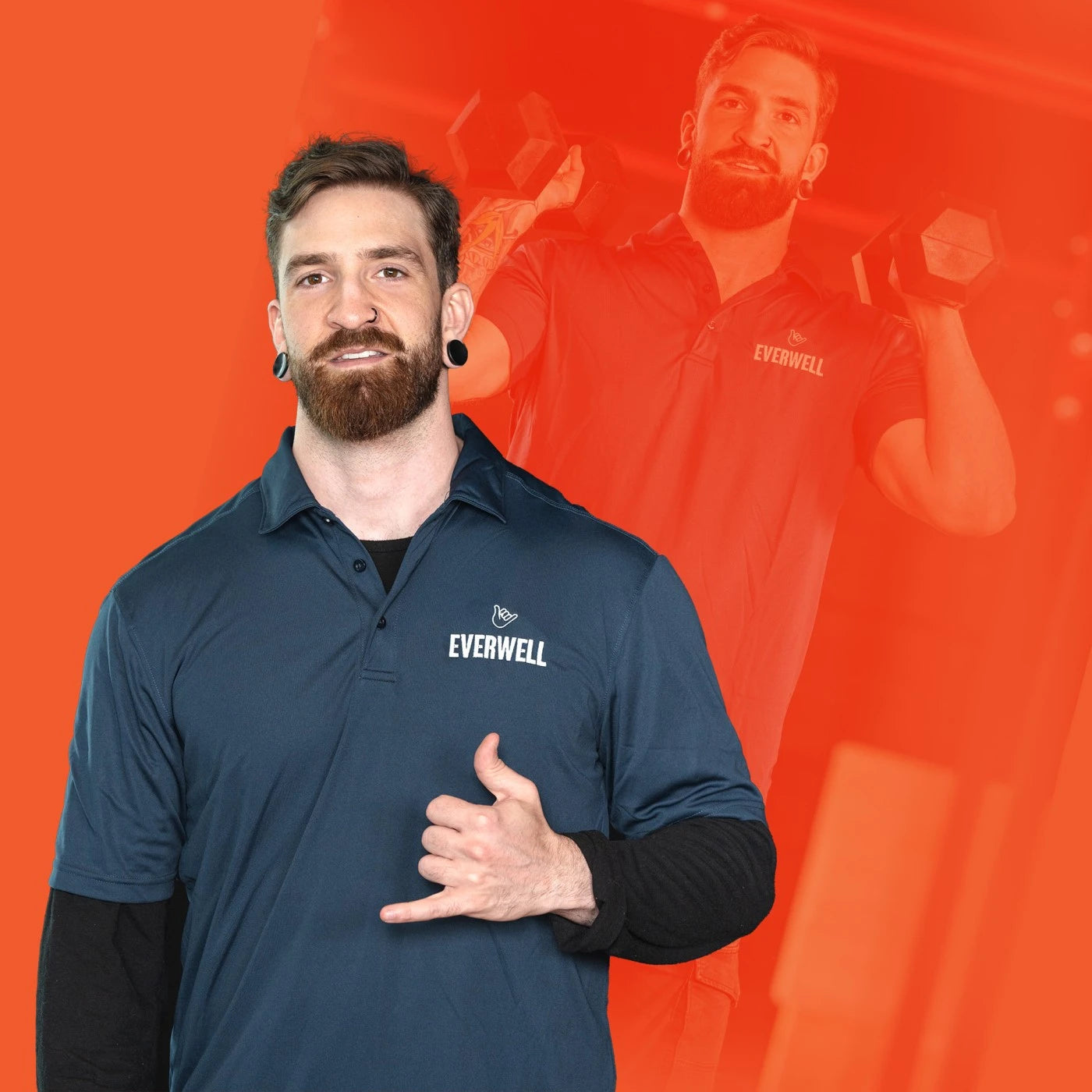Sep 30, 24
How to Gain Muscle Mass?
Gaining muscle mass is first and foremost a thoughtful approach. It’s not just about training hard but also optimizing what you do in the gym, what you eat, and how you rest. In the sections below, we’ll show you exactly how to structure your workout, adjust your nutrition, and optimize your recovery to reach your goals.
1. Strength Training – The Foundation of Any Muscle Gain Program
Gaining muscle mass relies on a simple yet essential principle: putting your muscles under enough stress for them to grow. This involves working with compound movements, managing time under tension, and applying progressive overload over the weeks. In other words, you need to use exercises that engage multiple muscle groups and push them to their limits to maximize growth.
Compound Exercises: Maximize Every Movement
Compound movements like squats, deadlifts, and bench press are the pillars of a solid muscle gain program. These exercises recruit several muscle groups at once, which promotes faster and more balanced muscle growth. They also help improve strength, stability, and muscle endurance.
For instance, when performing a squat, you're not only engaging your legs but also your core and back. This type of exercise helps you gain strength and develop muscle mass effectively.
Progressive Overload and Managing Time Under Tension
To optimize muscle gain, progressive overload is crucial. This means you should gradually increase weights or the number of repetitions so that your muscles keep adapting. Each session becomes an opportunity to increase strength, capacity, and muscle endurance.
Additionally, managing time under tension—the time your muscles remain contracted during an exercise—is another key factor in muscle hypertrophy. Keeping your muscles under tension for a sufficient duration promotes the creation of microtears, which repair themselves by developing more muscle.
How to Apply Progressive Overload and Time Under Tension?
- Increase weights or repetitions each session to force your muscles to adapt.
- Control movement and ensure your muscles stay under tension long enough (about 30 to 60 seconds per set).
- Aim for sets between 6 to 12 repetitions, with appropriate rest periods to maximize muscle growth.
Training Frequency and Session Distribution
To optimize muscle gain, it's recommended to train 4 to 5 times a week. Each session should target specific muscle groups, allowing your body to recover between sessions. A well-organized training program could look like this:
- Day 1: Squats and leg exercises.
- Day 2: Bench press and upper body exercises.
- Day 3: Deadlift and back and bicep exercises.
This distribution allows you to work each muscle group in-depth while ensuring enough recovery time.
And if you want to take things to the next level, the Everbuild muscle gain program offers a 12-week structure with training phases designed to maximize muscle hypertrophy and help you reach your goals, regardless of your level.
2. Nutrition – The Fuel for Muscle Gain
Training is essential, but to truly maximize muscle gain, paying attention to your nutrition is equally crucial. What you put on your plate can make all the difference. A proper balance of proteins, carbohydrates, and healthy fats is essential to provide your body with the energy needed for muscle growth.
Consume a Caloric Surplus to Support Your Efforts
To build muscle, your body needs a caloric surplus, meaning consuming more calories than you burn daily. But beware, this isn’t an excuse to eat just anything. You need to prioritize quality, nutrient-dense foods that support your muscle gain goals. Complex carbohydrates like sweet potatoes, brown rice, or oats provide your muscles with the necessary energy, while proteins assist in recovery and growth.
How Much Protein Should You Consume?
The ideal range is between 1.6 and 2.2 g of protein per kilogram of body weight. For instance, if you weigh 70 kg (154 lbs), you should consume between 112 and 154 g of protein each day. Protein sources like chicken, fish, eggs, or even tofu are excellent choices.
Carbohydrates and Healthy Fats: Key Allies
Carbohydrates are essential for replenishing your muscles' glycogen stores, which are depleted during intense sessions. Consuming enough carbs helps you recover more efficiently and prepare for your next workout.
Healthy fats also shouldn't be overlooked. They play a role in hormone production, like testosterone, which is essential for muscle growth. Foods like avocado, nuts, and olive oil provide the fats your body needs while promoting optimal health.
Supplements: A Boost for Your Goals
For some, reaching the necessary caloric and protein intake solely through food can be challenging. That’s where supplements like protein powder or gainers can come in to fill the gaps. They allow you to quickly provide additional protein and calories to support your goals without needing multiple solid meals.
Meal Planning and Consistency: The Keys to Success
To sustainably maintain your caloric surplus, meal planning is essential. Preparing meals in advance helps you avoid falling into unhealthy eating habits when short on time or energy. Good organization enables you to stay on track day after day.
If you need additional support, Everwell’s private coaches specialize in nutrition and supplementation. They help structure your diet and maximize your progress. Whether it's adjusting your meals or incorporating the right supplements, Everwell trainers guide you every step of the way.
3. Recovery – A Key Element to Optimize Muscle Growth
Training hard and eating right are essential, but without proper recovery, you risk hindering your results. In reality, it's during recovery that your body rebuilds and muscles grow. To maximize muscle gain, giving recovery as much importance as training and nutrition is crucial.
Sleep: When the Magic Happens
Sleep is perhaps the most underrated aspect of recovery. It's when you sleep that your body releases growth hormones, which play a fundamental role in repairing muscle fibers damaged during training. Depending on factors like training intensity, age, and physical condition, quality sleep of at least 7 to 9 hours per night is essential for your muscles to rebuild and develop.
To truly optimize muscle gain, try setting regular sleep routines. Your body will get used to these schedules and regenerate more effectively, helping you progress faster.
Active Recovery: Don't Stay Idle
Recovery doesn’t mean being completely inactive. Active recovery, like light cardio or stretching sessions, can help improve blood circulation and remove toxins, speeding up muscle healing. Activities like walking, yoga, or even a light bike session can significantly enhance recovery between workouts.
Watch for Signs of Overtraining
One of the most common mistakes in muscle gain is overtraining, thinking more effort means more results. Overtraining can have the opposite effect, slowing progress and increasing the risk of injury. That’s why listening to your body and taking rest days when necessary is important.
If you experience constant fatigue, unusual pain, or decreased motivation, it may be a sign that you’re overdoing it. Taking an extra rest day or reducing workout intensity can help you come back stronger.
Stress Management and Recovery
Stress also plays a role in the quality of your recovery. High stress can increase cortisol production, a hormone that tends to hinder muscle growth. Incorporating stress management practices like meditation or deep breathing can improve recovery and help you stay motivated and focused on your goals.
Tracking Progress and Adjusting Your Plan – The Key to Sustainable Muscle Gain
Gaining muscle mass is not a set process. To ensure consistent results, it's essential to regularly track your progress and adjust your training plan and nutrition based on the results you observe. This adaptability allows you to maximize gains in the long term.
Measuring Your Progress: Don’t Just Rely on the Scale
To properly assess your progress, it's important to go beyond the numbers on the scale. It doesn’t tell you if the weight gained is mostly muscle or fat. Regularly measuring your body parts (arms, legs, waist) and taking before/after photos help you visualize changes in your body composition more accurately.
More advanced tools, like the InBody scan, give a detailed analysis of your body composition by providing information on your body fat percentage, muscle mass, and basal metabolism. These data allow for more precise plan adjustments.
Adjusting Your Training and Nutrition Based on Results
If you notice your gains are slowing or plateauing, it might be time to adjust your training program. This could include:
- Gradually increasing weights to continue stimulating muscle growth.
- Introducing new exercises or variations, like switching from a classic bench press to an incline press or weighted push-ups to surprise your muscles.
- Changing the set and repetition distribution, for example, from 4 sets of 8 reps to 5 sets of 6 reps with heavier weights.
The same applies to your nutrition. If you’re not seeing enough muscle gains, you may need to slightly increase your caloric intake (about 200 to 300 additional calories per day). On the other hand, if you’re gaining fat too quickly, slightly reducing your intake can help better control your body composition. Adjusting macronutrient distribution (more protein or carbs) is also an option.
Ready to Level Up?
Regular tracking allows you to quickly spot plateaus and adjust your plan before they affect your results. Tools like the InBody scan and personalized support can make a real difference in optimizing your progress. At Everwell, our private online coaches across Quebec accompany you every step of your journey. With monthly tracking through the Everwell app, you’re guided to adjust your training and nutrition based on your tangible results.





